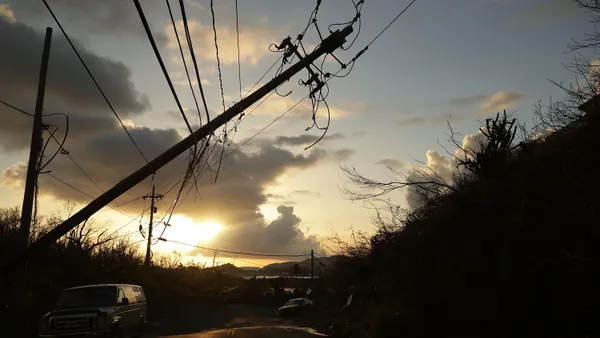Dive Brief:
- The New York City Metropolitan Transportation Authority's Office of the Inspector General is advocating for a revamp of the agency's current contractor evaluation system. Inspector general Carolyn Pokorny's report found that less than 1% of MTA contractors have been rated as providing unsatisfactory performance even though the OIG has "expressed skepticism" that MTA contractors have executed on their contracts that well.
- The OIG said that its 2009 report covering the same issue first revealed the problem and that its latest review of data from 2016 through 2019 indicates that the same deficiencies in the evaluation process remain. In addition, the OIG said that MTA project managers who complete evaluations do not consider the All-Agency Contractor Evaluation (ACE) system to be a useful tool either.
- The OIG said that last year's centralization of the construction and development functions of the agency is an opportunity to come up with a new evaluation system that meets the original ACE goals of allowing project managers to track contractor performance and identify contractors that are not meeting performance standards. In addition, it will give the MTA and other agencies the opportunity to consider subpar performance before awarding contractors additional work.
Dive Insight:
The MTA's current ACE system looks at five criteria for contractors with contracts of $250,000 or more:
- Quality.
- Management.
- Safety.
- Scheduling.
- Minority, women and disadvantaged business compliance.
Every six months evaluators rate each category as "satisfactory," "marginal" or "unsatisfactory;" notify contractors of any deficiencies and give them time to correct any problems. Evaluators also assign an overall performance rating to each contractor.
In this latest report, the OIG said that MTA officials agree that the ACE needs revision and that the agency will incorporate the new metrics it has already developed to rate contractor performance into the new system.
While a new system of evaluation might be warranted, said attorney Erik Ortmann with Kaufman Dolowich Voluck in New York, there would be concerns if the MTA made it "an institutional goal" to rate more contractors as unsatisfactory.
"Is there going to be a desire to do that at all costs?" he asked. "Is an element of fairness going to be lost?
If so, Ortmann said, contractors could eventually challenge changes to the evaluation system they deem unfair or arbitrary in court, a process that would most likely be very time consuming for all involved.
Last year, as part of a state-mandated Transformation Plan, the MTA consolidated its construction department — about 430 people — from several of its divisions in the hopes of creating more time- and money-saving efficiencies. Without the massive overhaul, which also included the creation of an engineering department to ensure the quality and sustainability of its projects and the establishment of agency-wide operations standards, lawmakers were leery of supporting the MTA's $51.5 billion 2020-2024 capital budget.
While the MTA's changes have not been in effect for even a year, the agency could already be realizing the benefits. Earlier this month, the MTA announced its Long Island Rail Road expansion project, at 50% complete, is under budget and ahead of schedule.














